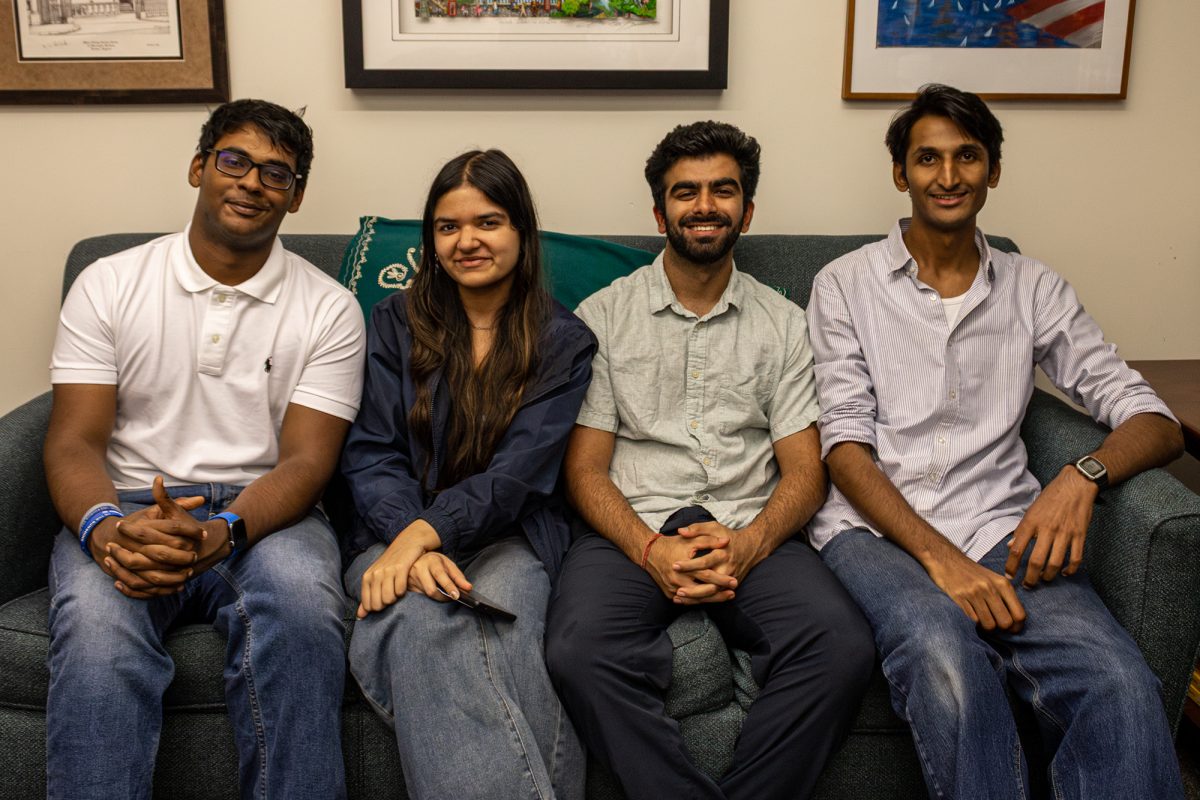Early in the afternoon on Thursdays, select members of IC Challah for Hunger meet in the Terrace Dining Hall bakery and prepare dough for challah. Later that same day, the rest of the club will meet, measure the risen dough, weave their individual challahs and bake them to be sold the next day.
Challah is a Jewish bread that is commonly eaten on ceremonial holidays. It is woven before being baked, resulting in its special braided shape. In IC Challah for Hunger, students volunteer their time at 6:30 p.m. every Thursday to bake the bread and then sell it on Fridays from 10 a.m. to 2 p.m. Mini challahs cost $1, and regular-sized challahs cost $3. IC Challah for Hunger is only one chapter of a national organization.
“The goal for the national organization as a whole is to fight against hunger through acts of service, education and community,” said senior Rachel Ratner, president of IC Challah for Hunger.
In 2004, Eli Winkelman of Scripps College gathered a small group of students to bake challah and connect with the Jewish community at Scripps. What started as students baking challah for fun evolved into an expansive network of over 80 college chapters that now bake challah with one goal in mind: to take action against hunger.
According to the official Challah for Hunger website, the Ithaca College chapter was founded in Fall 2013 and has been donating to charities ever since. The proceeds from what is sold are split in half between MAZON: A Jewish Response to Hunger and the Food Bank of the Southern Tier. Both organizations tackle issues regarding food insecurity.
The money IC Challah for Hunger donates to the Food Bank of the Southern Tier goes toward helping seniors, children, disabled people, homeless people, single-parent families, disaster victims and unemployed individuals in the southern tier of New York. They provide food and volunteers to meal programs and shelters in Broome, Chemung, Schuyler, Steuben, Tioga and Tompkins counties.
MAZON: A Jewish Response to Hunger is a nationwide group acting to end hunger in the United States and Israel that also receives support from Challah for Hunger. While its basis is inspired by Jewish values and ideals, it spreads their assistance to all faiths and people.
What IC Challah for Hunger members do every week has a real impact on the community they live in, Ratner said. She said the efforts of the organization extend to students at the college as well because it supports students who suffer from food insecurity.
“A common assumption is that students who can afford to attend college can afford food for themselves too,” Ratner said. “However, that is not always the case. Even if a student could afford three meals a day, that does not necessarily imply those are three nutritious meals.”
IC Challah for Hunger also works to educate its members on food scarcity and the importance of what the organization is doing for the community. Freshman Isabelle Marenberg, a member of IC Challah for Hunger, described how the club educated her on food insecurity.
“When we first joined, they did one meeting with a kind of game to educate people about the issues,” Marenberg said. “So we are not just going to braid the challah, but we’re learning about why we’re doing it.”
Freshman Sydney Johnson, another member of IC Challah for Hunger, said she believes the club is spreading awareness.
“I think a lot of it is selling the bread so we can give the proceeds to helping the issues,” Johnson said. “But I also think they want to have people at the college level start to care about these kinds of issues so that in the future we will have more people that are aware of food scarcity.”
As freshmen, both Marenberg and Johnson said they wanted to make a difference in the community. They said that the purposes of the club are important and valuable and that the members also formed a community of bakers and volunteers. Whether making the bread as a group or selling the bread in the Campus Center, they said, working together strengthens the members’ efforts in the community.
“There’s a good community aspect because you go every week, you see everybody and you talk while you do it, so it’s very friendly,” Marenberg said.
Though the club has a Jewish background, Ratner said, it is not only for people of Jewish faith.
“Our campus club hopes to grow in membership and make our presence, cause more aware around IC,” Ratner said. “Even though the organization is Jewish based, we try to make it known that anyone can join our club or donate.”














